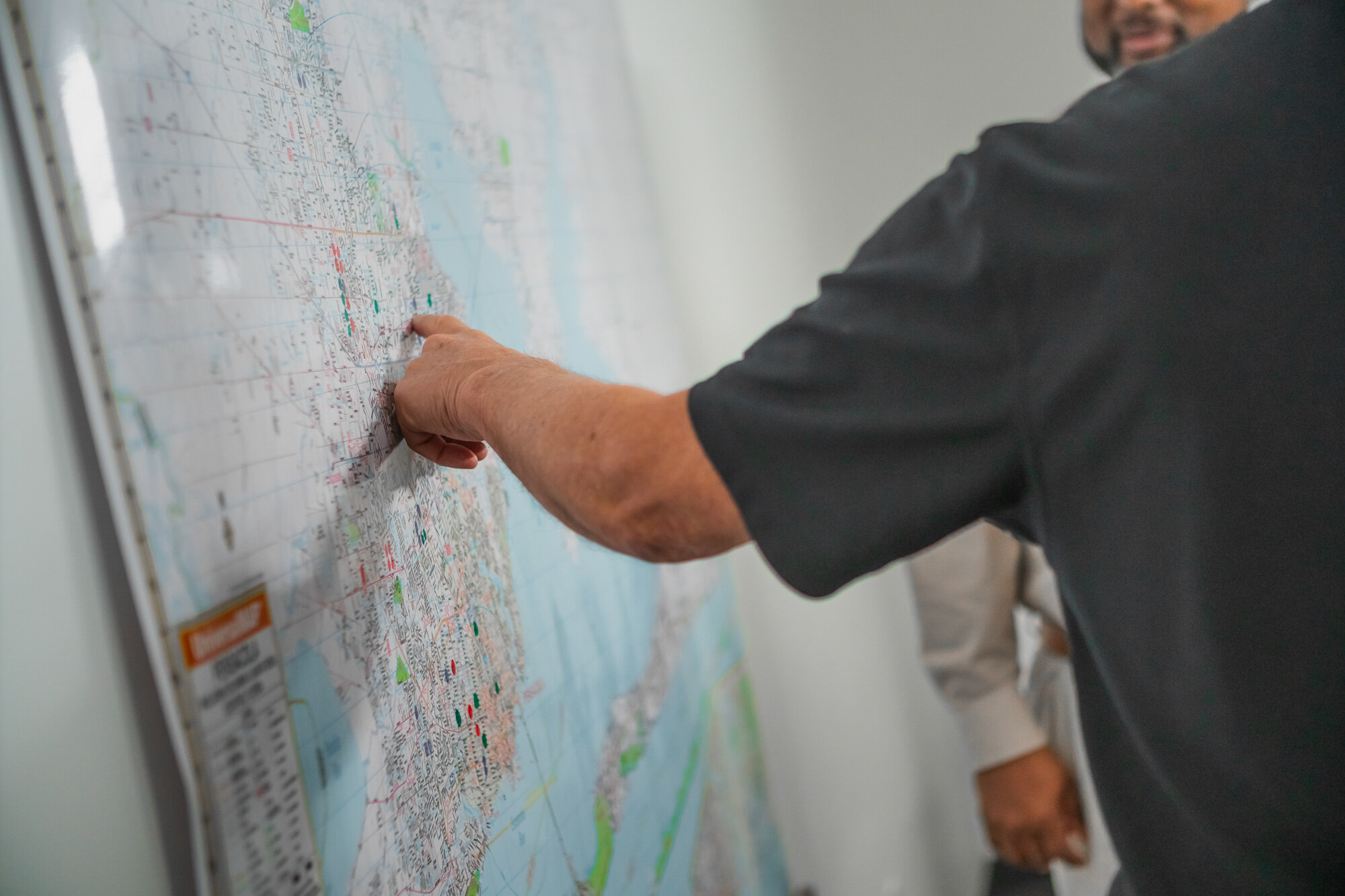By Jim Little, Pensacola News Journal
Pensacola is looking to shift the paradigm in affordable housing with a new partnership.
In April, the city of Pensacola took its first step toward that goal by agreeing to put four city properties in the new Northwest Florida Community Land Trust.
Past efforts of the city to boost the supply of affordable homes in the city have been narrow and fleeting before the homes are "lost to the market," which has led to a perception that the city isn't serious about affordable housing.
In February, during a discussion over the demolition of Malcolm Yonge Gym, Pensacola resident Jasmine Brown voiced that perception of distrust.
Haunted by memory of Aragon Court
Brown was referring to the loss of the old Aragon Court. The public housing development was closed and demolished in the late 1990s after years of neglect. While the replacement of Aragon Court was always billed as a high-end development, critics of city policies often cite the replacement of the city's most affordable housing with homes catering to the elite as a breach of the public's trust.
In 2017, Pensacola's Community Redevelopment Agency undertook the redevelopment of the W.A. Blount Junior High School to build affordable homes for first-time home buyers.
The city partnered with a developer build 26 homes on the entire city block and six of those homes were part of a city affordable housing program for first-time home buyers making 80% or less of the area median income. Those six homes had an original selling price of $189,900 in 2019 and 2020. Today the homes are worth more than $350,000 and one has even sold for $380,000 in 2022, according to Escambia County Property Appraiser records.
Those houses are "lost to the market" and will never be in the affordable housing stock again after their initial sale.
Pensacola Habitat for Humanity CEO Sam Young recognized a similar problem with the homes its organization had built over the decades.
"We have built close to 1,700 homes over the course of our history, which started in the 1980s," Young told the News Journal. "So out of 1,700 homes, I would venture a guess that 1,400 of those homes are no longer affordable to the individuals who go through our program. We've built all these affordable homes, but we've lost them all to the marketplace."
Another problem Young said his organization was facing was the rising cost of building a home, which meant that the organization was having problems providing affordable housing to the lowest income levels.
"Traditionally, we'd been able to serve as low as 30% of the area median income and work with those families and get them into a position where they could purchase a home from us," Young said. "But as a result of all of the factors that we're also familiar with, significant inflation, an increasing gap between wages, and the cost of homeownership, we just were not able to serve them anymore. And it was creeping up to where our minimum was at 50%, or 55%, and even 60% of the area median income. And that did not sit well. It didn't sit well with my staff. It didn't sit well with the board, and it certainly did not sit well with me."
Northwest Florida Community Land Trust
Young said he began researching and speaking to experts around the country, and the idea of creating a community land trust kept emerging as a potential solution to both problems.
In 2022, Pensacola Habitat for Humanity created a new non-profit called the Northwest Florida Community Land Trust to bring the concept to the Pensacola region.
More than 260 community land trusts were operating in the U.S. as of 2021, according to research compiled by the University of Wisconsin Population Health Institute. With their early origins to preserve land for poor Black farmers in the South in the 1960s, they were adapted to urban communities in the later decades to increase affordable housing for lower-income families and stop the displacement of residents with low incomes. In 1992, the federal government officially defined the legal requirements to create a community land trust and made them eligible for federal funding.
A land trust can keep homes affordable because it retains ownership of the land where a home is built. A qualified buyer can purchase a land trust home, but the buyer must sign a 99-year lease for the land upon which the home is built. With the lease, the land trust can set the terms on how the home is sold to future buyers.
The Northwest Florida Land Trust's lease would be set up so the first owner of the home would retain any principal paid into the home and share in any proceeds with the land trust from an increase in equity, according to Young. The longer the person lives in the home, the greater the share of the equity when it's sold.
The legal arrangement ensures that a home can only be sold to people with income levels that the land trust sets as qualified buyers. Housing costs are typically considered affordable at one-third of an individual's monthly income. So, if the land trust sets a home to qualify for 30% of individual area median income using 2022 data, the monthly housing cost would come out to approximately $285, or if it's set at 120% of individual area median income, the monthly housing cost would be $1,140.
When the next buyer comes along in five, 10, or even 99 years, the home would sell at a price to ensure its affordable to the set income level for the home.
Young said the land trust would not just be for Pensacola Habitat for Humanity homes but would be open to anyone wanting to ensure a home remains affordable.
"We want to be a true community land trust that is a vehicle for more than just us," Young said. "So if there's others that want to utilize this land trust for other avenues of affordable home building, and it could be rentals too."
Earlier this month, the city of Pensacola became the first local government to take a step in partnering with the land trust to potentially allow the Home Builders Association of Northwest Florida to renovate or build new homes on three city properties that will be made part of the land trust.
Speaking before the Community Redevelopment Agency on April 8, Young said depending on the situation the land trust can set the range from 30% of area median income all the way to 120% of area median income.
"We are guaranteeing what income brackets are going to remain in there," Young said "We're not going to lose these homes to the market. They are going to remain affordable in perpetuity."
While the land trust was created by Pensacola Habitat for Humanity, others have embraced it as a way to increase affordable housing. Last year, the Florida Legislature approved $2.5 million for the land trust, and another $1 million this year is awaiting approval by the governor. Impact 100 supported it by awarding it a grant last year.
While the land trust is still about two months away from starting construction on its first official home, Young said that soon more than 100 parcels could become part of the trust.
The City Council, meeting as the CRA board, voted unanimously in April to start the 30-day window to notice the public it intended to donate the city's four properties to the land trust.
During that meeting, Pensacola Mayor D.C. Reeves acknowledged the city's loss of trust in creating affordable housing, but the city was on the precipices of something new that would restore that trust.
"Where that structure (like the land trust) hasn't been in place, and we've lost homes to the market, I think with that is lost trust in the community that we can do what we say we're going to do, which is to try to take steps to solve this," Reeves said.
Reeves said the land trust is a tool the city has never had before to address affordable housing.
"So it might just be a couple of vacant parcels today, but I do think it's the beginning of something that could be really special here." Something, Reeves said, that could repair the trust in the city to attack the affordable housing crisis at scale.
"Which is exactly what it is − a crisis."
Young said the affordable housing crisis in Pensacola would never change unless something like the land trust is attempted.
"Without this, we are never, ever going to fix the affordable housing crisis," Young said.


